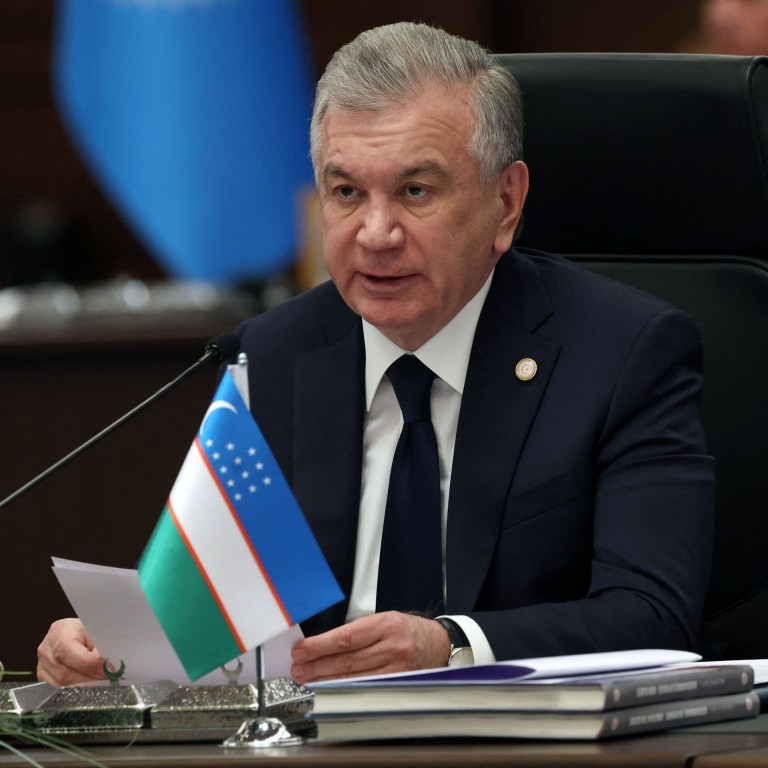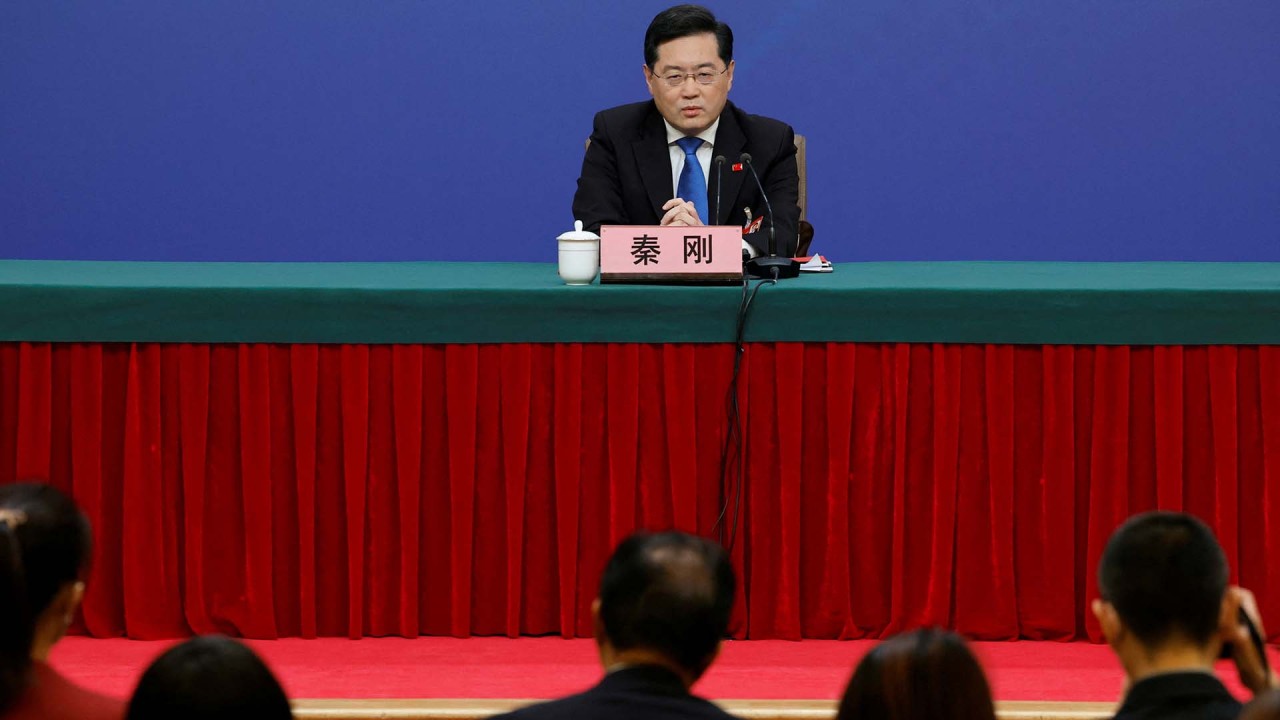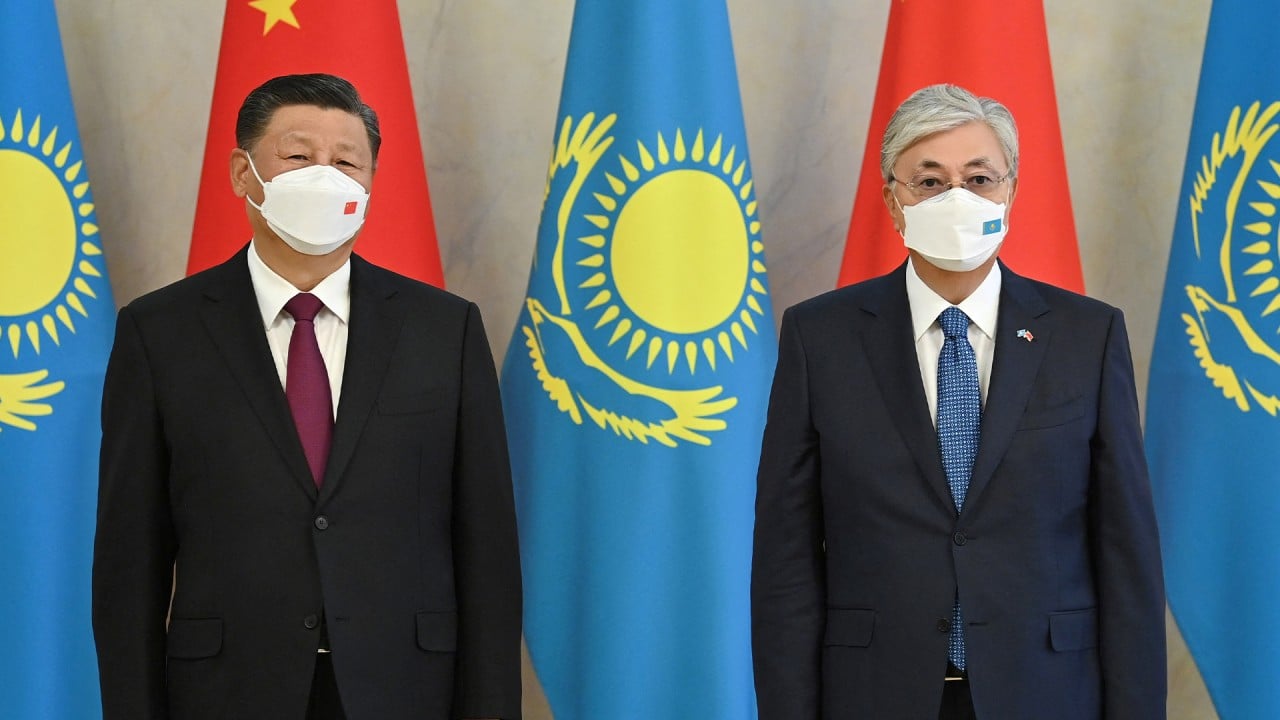
China urges US to live up to Afghanistan commitment as Qin Gang continues Central Asia push on Uzbekistan visit
- In position paper issued on Wednesday, Beijing accuses US of hindering humanitarian progress by seizing Afghanistan assets and imposing sanctions
- Chinese foreign minister will meet Uzbek president and acting foreign minister and discuss Taliban-ruled neighbour with counterparts from region
In a position paper issued on Wednesday, Beijing accused its rival of hindering the humanitarian progress by seizing Afghanistan’s overseas assets and imposing unilateral sanctions.
Without naming the US and its Western allies, the paper said it was a shared view in the region that Afghanistan had suffered because of “military interference and democratic transformation by external forces” in the country over the past 20 years.
“Relevant countries should not attempt again to deploy military facilities to Afghanistan and its surrounding areas … and should not realise their geopolitical designs by supporting and conspiring against terrorism,” the paper said.
The position paper was issued as Chinese Foreign Minister Qin Gang started his first journey to Uzbekistan on Wednesday, followed by a meeting with his counterparts from six countries in the region to discuss the situation in Afghanistan, Beijing announced on Tuesday.
“They will exchange views on bilateral high-level contacts in China-Uzbekistan relations and on international and regional issues of common interest,” Wang said.
Xi’s Central Asia trip a big first step in renewing regional contact: analyst
They also agreed to strengthen cooperation in fields including trade, investment, natural gas pipelines, green energy, agricultural infrastructure, public health, tourism, culture, education, environmental protection and arts and culture.
Landlocked Uzbekistan represents a key hub for China’s natural gas supply, as the Central Asia-China pipeline runs through the country and provides up to 10 billion cubic metres (353 billion cubic feet) of natural gas to China.
Could Xinjiang-Central Asia railway tilt regional power in China’s favour?
Negotiations on the railway had stagnated for two decades, partially because Russia, which has historically had significant sway over Central Asia, objected to the project that could increase China’s presence in the region.
It wasn’t until last year that Beijing finally reached an agreement with Uzbekistan and Kyrgyzstan. The Russia-Ukraine war appears to have provided some impetus for the deal.
Russia’s war in Ukraine has boosted the geopolitical importance of the region. US Secretary of State Antony Blinken visited Uzbekistan in March and agreed with Saidov on strengthening security cooperation in Central Asia.
Additional reporting by Ziwen Zhao



